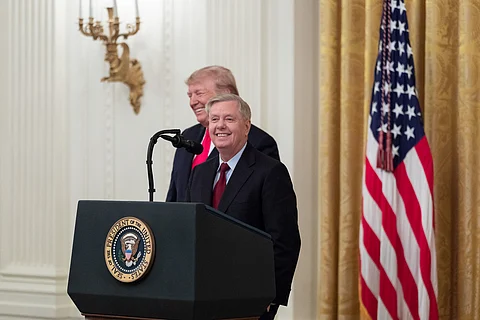

The administration of U.S. President Donald Trump is reportedly urging the Senate to scale down a proposed sanctions bill targeting Russia.
According to a report by The Wall Street Journal, officials from the Trump administration have contacted Senator Lindsey Graham’s office to request modifications to the bill, which was introduced by Graham on April 1st. The legislation, which reportedly has the backing of 82 senators, proposes placing 500% tariffs on countries that purchase Russian energy—such as oil, gas, uranium, and other products.
On May 30th, Graham, along with Senator Richard Blumenthal, visited Ukraine, where Graham announced that the Senate would advance the bill this week.
Trump has been reluctant to publicly endorse the measure, stating at various points that only he can authorize sanctions and that he would “have to take a look” at the bill before offering support. On Wednesday, Senator Roger Wicker said that Trump had requested the Senate postpone the vote, which had been scheduled for this week.
Speaking to reporters Thursday during a meeting with German Chancellor Friedrich Merz, Trump said, “They’ll be guided by me. That’s how it’s supposed to be… They’re waiting for me to decide on what to do,” again signaling he is not ready to move forward with the sanctions.
Among the changes the White House is reportedly requesting is a shift in language from “shall” to “may,” which would make the sanctions discretionary rather than mandatory, granting Trump flexibility over their implementation.
Though the bill is framed as targeting Russia and intended as a tool to pressure Moscow into negotiations, it would primarily impact countries such as China and India—major purchasers of Russian energy.
The U.S. is scheduled to resume trade talks with China on Monday, following a recent agreement to temporarily reduce the 145% tariffs imposed on Chinese imports in April. These tariffs have already affected global markets and U.S. manufacturing, which depends heavily on rare earth minerals from China.
If the 500% tariffs are codified into U.S. law, it could derail the trade negotiations and spark a long-term trade war between Washington and Beijing—another likely factor behind Trump’s hesitancy and the difficulties surrounding the bill’s advancement.